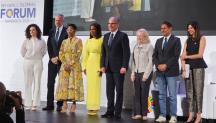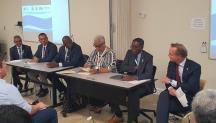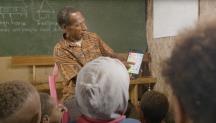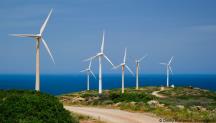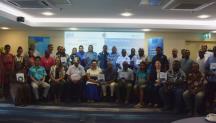

Powering Islands with Renewable Energy
Newsletter
This week, IRENA is participating in the second annual UN Sustainable Energy for All Forum in New York City. In addition to launching the 2015 renewable energy jobs report, IRENA is also participating in various sessions on energy access, energy policy, mobilizing finance for renewables in Africa, communicating renewable energy, renewable energy for islands and others.
In a particularly enthusiastic session, IRENA’s Elizabeth Press moderated a discussion on key elements needed to scale-up renewable energy in small island developing states (SIDS).
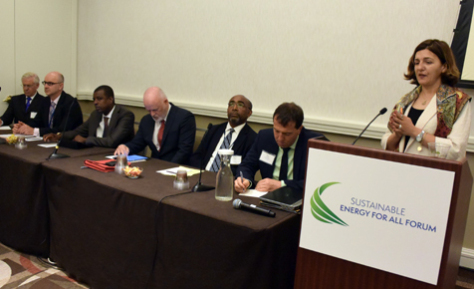
Co-organized by the UAE, the session was opened by Ambassador Lana Nusseibeh, Permanent Representative of UAE to the United Nations. The UAE currently has a USD 700 million renewable energy programme with 15 SIDS, which has thus far resulted in USD 3.5 million in savings from avoided diesel imports.
“There is no better opportunity to showcase the benefits of renewable energy than with SIDS. SIDS renewable energy projects create jobs, save money, and stimulate the local economy.”
Panel participants were asked to answer the question “What are the 2 to 3 most significant obstacles in scaling up renewable energy that must be overcome?”
Darcy Boyce, Minister of Energy in the Prime Minister's Office of Barbados, stated that the business case for renewable energy already exists on the island and that clear policy frameworks are vital to renewable energy uptake.
“We were using a lot of fuel just to heat our water, and we had all this solar out there. We decided to give a tax incentive for solar water heaters, which has resulted in 34% of our households using solar water heating. We are now following the same approach for other renewable energy technology.”
Ambassador Peter Thomson, Permanent Representative of Fiji to the United Nations stated that policies are important and so is understanding the renewable energy potential in your area.
“Understanding your potential is a critical way to move forward. For example, we have mountains and large hydropower potential, this is not the case with our neighbors. All the SIDS have different potentials.”
Ambassador Vince Henderson, Permanent Representative of Dominica to the United Nations, stressed the necessity of partnerships in development renewable energy resources, especially higher cost sources like Geothermal, which is rich in Dominica.
“You need to get the right partners. We were able to attract funding from the European Union, France and the French territories, which helped us de-risk our geothermal projects. We now know we can be 100% powered by renewable energy by 2019.”
Other speakers including Craig Hawke from UNDP/New Zealand, Jan Hartke of the Clinton Foundation and Mike Ekhart from GIZ, also confirmed the need for enabling policies, partnerships and appropriate financing.
Ahmed Sareer, Chair of AOSIS and Permanent Representative of Maldives to the United Nations, further stressed the necessity for islands to lead action on emission reduction through renewable energy deployment, especially in the lead up to the global climate change negotiations in Paris this December.
IRENA’s initiative to support islands in the scale up of renewable energy, the SIDS Lighthouses Initiative, aims to support SIDS in setting up enabling policies, locating financing and establishing beneficial partnerships. It hopes to:
- Mobilize USD 500 million
- Deploy 100 MW of new solar PV
- Deploy 20 MW of new wind power
- Deploy small hydropower and geothermal energy and a number marine technology projects in progress
- Ensure all participating SIDS develop renewable energy road maps
By speeding the uptake of renewable energy on islands around the world, the Lighthouse Initiative will enable SIDS to lead by example on climate change. Maximising the use of indigenous, clean and plentiful renewable energy requires a structured, holistic approach to ensure long-term sustainability. The SIDS Lighthouse process will also capture invaluable lessons for the rest of the world.
“SIDS can not only play their part, but can also lead in the global effort to mitigate climate change through the rapid deployment of renewables.” Elizabeth Press, Deputy Director, Innovation and Technology Centre
